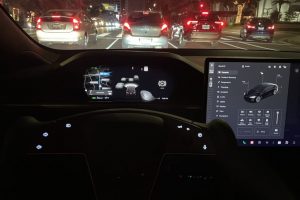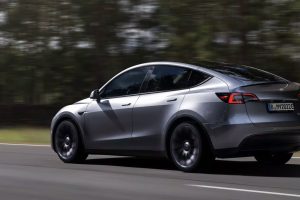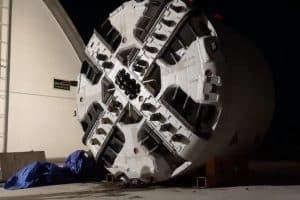- 🚧 Tesla has paused plans for its new Gigafactory in Nuevo Leon, Mexico.
- 🗳️ The pause is due to the upcoming U.S. Presidential Election and potential policy changes.
- 📊 Former President Trump’s policies may impose tariffs on cars built in Mexico.
- 👥 Elon Musk supports Trump and plans to vote for him in the next election.
- 🔄 Tesla will focus on increasing production capacity at its Fremont, California, and Austin, Texas factories.
- 🤖 Robotaxis and the Optimus project will be produced at Giga Texas.
- 🇺🇸 Trump aims to prioritize U.S. manufacturing and reduce EV mandates.
Tesla’s ambitious plans for a new Gigafactory in Nuevo Leon, Mexico, have taken an unexpected turn. Amid the rising tension and uncertainty of the U.S. Presidential Election, the electric vehicle giant has halted construction on this prospective site. Here’s a deep dive into the intricate factors influencing this decision and what it means for the future of Tesla’s manufacturing strategy.
Tesla has been a trailblazer in electric vehicle (EV) manufacturing, expanding its global footprint with state-of-the-art Gigafactories. However, their latest venture, a Gigafactory in Nuevo Leon, Mexico, has been placed on hold. The decision stems from political uncertainties tied to the U.S. Presidential Election, which could dramatically affect cross-border manufacturing policies and business strategies.
The Political Catalyst
The U.S. Presidential Election and Its Implications
As the U.S. Presidential Election looms, political leaders shape the future of policies that directly impact international business operations. This election cycle is proving particularly influential for Tesla. Former President Donald Trump, who is gaining momentum, has proposed policies that could impose significant tariffs on vehicles manufactured in Mexico and imported into the United States.
Elon Musk’s Political Stance
Elon Musk, Tesla’s CEO, has publicly declared his support for Trump, stating he will vote for him in the next election. Musk’s endorsement is noteworthy, as it suggests that Tesla’s business strategies may be closely aligned with prospective policy changes under a Trump administration. The potential for heavy tariffs has made the financial viability of a Mexican Gigafactory less attractive, prompting the company to shift focus.
Strategic Shift: Scaling Up in the U.S.
Expanding U.S. Production Capacity
In response to the uncertain political landscape, Tesla plans to intensify operations at its Fremont, California, and Austin, Texas facilities. By ramping up production at existing sites, Tesla aims to mitigate risks associated with international manufacturing while ensuring they can meet burgeoning demand.
- Fremont, California: One of Tesla’s earliest and most established factories, Fremont is well-equipped to handle increased production loads.
- Austin, Texas: Giga Texas isn’t just central to Tesla’s production strategy; it’s set to be the birthplace of Tesla’s future innovations.
Innovations at Giga Texas
Elon Musk has highlighted that the Texas location will be pivotal in producing advanced projects, including Robotaxis and the Optimus project:
- Robotaxis: A fleet of self-driving taxis that promise to revolutionize urban mobility.
- Optimus: A humanoid robot initiative aiming for high-volume production towards the end of the next year.
Broader Implications
Impact on Tesla’s Global Strategy
Tesla’s pause in Mexico signals a significant shift towards consolidating and enhancing U.S. operations. This move could bring several benefits, such as:
- Economic Stimulus: Increased investments in U.S. factories could spur job creation and economic growth domestically.
- Resilience to Policy Changes: By focusing on U.S. production, Tesla mitigates risks associated with international trade policies and tariffs, ensuring a more stable and predictable business environment.
Potential Challenges
While U.S.-based production offers several advantages, it isn’t without challenges. Some potential hurdles include:
- Supply Chain Concerns: Centralizing production may strain local supply chains, requiring robust management strategies.
- Scaling Issues: Rapidly increasing production capacity might lead to logistical and operational bottlenecks.
Conclusion
Tesla’s decision to pause its Gigafactory project in Nuevo Leon, Mexico, is a calculated response to the volatile political climate in the U.S. As the Presidential Election nears, the possibility of restrictive tariffs under a potential Trump administration has redirected Tesla’s strategic priorities inward. By bolstering its U.S. operations, Tesla not only safeguards its manufacturing capabilities but also positions itself to continue leading the EV revolution.
This strategic pivot underscores the intricate interplay between politics and global business operations, highlighting how Tesla adeptly navigates these waters to maintain its competitive edge.





